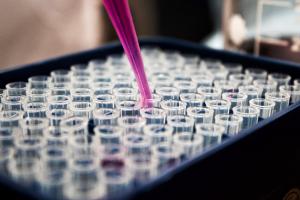
23andMe recently added an option to test for your probability of getting diabetes. (Type-2 diabetes as that is by far the more common type to start in adulthood.) They are famous for the tests regarding which countries your DNA comes from. However, I want to examine if this is worth it. I examine problems both with the DNA testing in general and then talk about the issues related to diabetes in particular.
New Diabetes Test
CNBC carried the story of this new 23andMe test:
On March 11, the company told CNBC it is upgrading its $99 and up at-home DNA test to include a report on diabetes, with an explanation on both the genetic and lifestyle factors that influence who’s likely to get the disease in their lifetimes. […]
Moreover, testing for diabetes risk is not as simple as some other health conditions, where a single genetic variant can have a major impact. Rather, there are lots of small variations across the human genome that add up to a higher risk in some people than others. And lifestyle factors, like diet and exercise, play a huge role. To avoid giving the impression that users don’t have to take care of their health, which they should do regardless, there’s no “decreased risk” result for diabetes.
Ultimately, 23andMe said it is hoping that users will be inspired to make behavioral changes.
General Problems
Probability Issues
These at-home DNA testing have issues. They seem to oversell the accuracy.
Most people don’t know this when they share their results, but 23andMe sets confidence to 50% by default: “The default Speculative Estimate corresponds to 50% confidence. You have the option to make the estimate more strict, meaning that the interpretation shown is more likely to be accurate. While the conservative view of Ancestry Composition displays the ancestry assignments that we are most certain of, you will see more assigned ancestry in the speculative view.”
In other words, when you move it to more confidence, the accuracy decreases significantly. When they switched confidence higher on this video, they got things like “Broadly European” rather than noting specific countries or regions, like Polish or Balkans.
In the same video, identical twins tried five testing kits also got radically different countries between the five tests. In their tests, 23andMe and another company gave notably different results for the identical twins. One of the experts on video even explains the probabilities. Then the expert says, “People need to know what they are buying is entertainment.”
Results even change as companies get better samples or algorithms.
Privacy
Various privacy concerns arise from doing DNA testing.
First, we can worry that they may store your DNA forever. DNA testing companies promise some privacy: you can sign the form so they destroy your samples after the tests. Consumer level testing only checks some DNA strands, not all, so destroying samples leaves them without data on the rest. However, all that data from the report is still in their database, associated with your name. What if they get hacked?
Beyond that, we need to start thinking about who they share data with. We know DNA companies have shared data with the FBI and with pharmaceutical giant GlaxoSmithKline.
However, the biggest worry I’d have is third parties who might be able to make decisions about you based on your DNA. Imagine if your health or life insurer realized you had a predisposition to diabetes. Would that mean your premiums would increase dramatically despite having no signs of the condition? Fortunately, “Most life insurers are restricted by state laws from using genetic information in the underwriting process, which protects genetic results as a form of private property.” However, in other states, it seems like once you know of a genetic risk, if you don’t disclose, the insurance company could theoretically not pay out death from diabetic complications claiming you didn’t disclose relevant data. (However, this later has yet to be tested legally.)
Human Dignity
Two of the underlying problems with over-focus on DNA are philosophical. If we reduce humans to DNA, then we take out other aspects of who each of us is. First, if I am only my body, determined by DNA, then I lack a spiritual aspect. But it is our spiritual aspect, our soul, that gives us our human dignity above other animals. Second, if we say DNA causes many traits, people can forget the reality of human freedom. Human beings are free and responsible even if we each have predispositions (not predeterminations) to certain actions.
DNA testing does not necessarily result in either of these but can tend both ways. We need to avoid that danger whether we use them or not.
Diabetes Testing with 23andMe
Good Things from Diabetes Testing
The first thing that is positive is if it actually helps people who are at risk for type 2 diabetes so they can avoid it. This is the main goal.
Also, it could be helpful in the other way where someone without the risk is less worried about enjoying a slice of cake.
Problems with Diabetes Testing
It would be a challenge to compare these results to family history. For example, if nobody in a family has type-2 diabetes but some have high blood pressure, a person should worry more about high blood pressure than type-2 diabetes. I doubt doing DNA testing would change this. However, what is the predictive power of DNA tests vs. family histories?
Also, as they note, “There are lots of small variations across the human genome that add up to a higher risk in some people than others.” This makes testing for type-2 diabetes risk very tentative. It is a problem if people read too much into the results and assume they can’t get it or are definitely going to get type-2 diabetes.
Conclusion
I’ve decided for myself not to do any commercial DNA testing. I might do one with my doctor protected by HIPAA but fear anything beyond that would not be private. However, you might decide differently for yourself. Just know that these tests aren’t as accurate as the ads seem. Also, if a commercial DNA health test helps you decide to make healthier choices that is good, but remember this is probability, not science. We also need to keep our human dignity in mind beyond whatever our DNA says about us.
Note: please support me on Patreon.
EDIT: I did not know type-1 diabetes could start in adults and implied that it could not in the original. I was informed otherwise. It is rare but real: “Annual incidence is 15/100 000 in the 15–34 year age group, increasing by 2.8% annually, and is 7/100 000 in the 30–50 age group”












